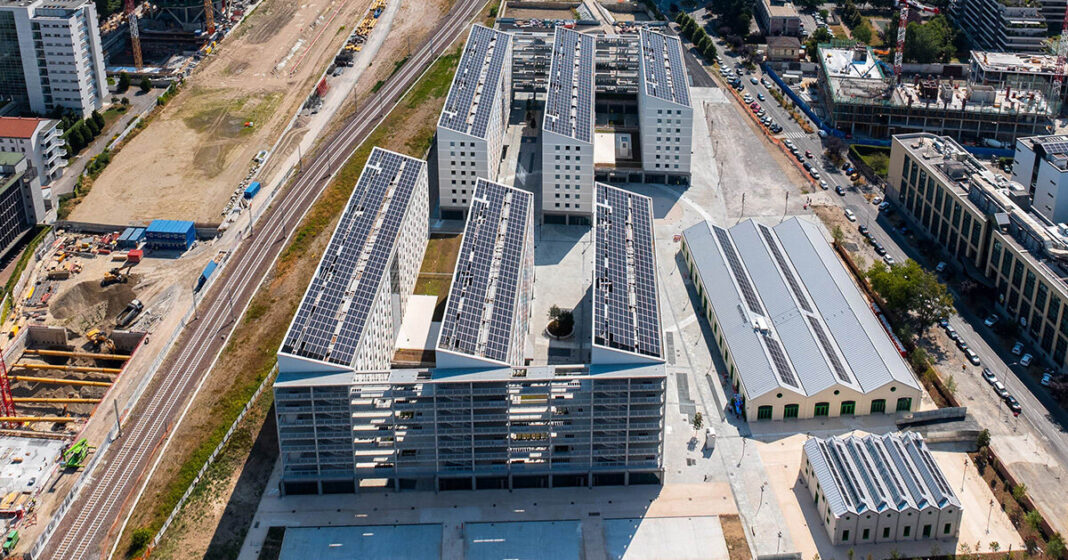Milan Olympic Village by SOM completed ahead of schedule
With just months remaining before the Milano-Cortina 2026 Winter Olympics, construction of the Milan Olympic Village wraps up in the city’s former Porta Romana railway yard. The project, designed by Skidmore, Owings & Merrill (SOM) and delivered under the general and architectural supervision of Progetto CMR, marks Italy’s first use of the ‘partnering’ contract model for a major public development. This collaborative, efficiency-driven approach allowed the 50,000 sqm complex to be completed ahead of schedule, with official handover to COIMA real estate taking place in July 2025. During the Games, the site will host 1,300 athletes; after the closing ceremony, it will be transformed into Italy’s largest publicly supported student housing community, offering 1,700 beds, shared services, and green spaces (find designboom’s previous coverage here).
Located between Via Ripamonti and Corso Lodi, in the Fondazione Prada district, the disused Porta Romana scalo was once a vast infrastructural void dividing Milan’s southern sector. The site is currently undergoing one of the most ambitious regeneration initiatives in Europe, coordinated by COIMA SGR and its institutional partners through the Porta Romana Fund. The wider redevelopment began in 2005 as part of the Scali Milano initiative, which sought to convert over one million square meters of obsolete railway land into new urban centralities. The Olympic Village, a key anchor within the masterplan by Outcomist and Michel Desvigne, marks a milestone in this decades-long process.
construction of the Milan Olympic Village wraps up | image by UDB Studio
A fast-track conversion for a post-Olympic legacy
As of February 2025, all six residential buildings that make up the Olympic Village have been structurally completed, alongside the restoration of two historic railway buildings: the Squadra Rialzo and the Basilico warehouse, named after photographer Gabriele Basilico. Designed by the international architecture firm SOM with conversion in mind from the outset, the village will be handed over to Fondazione Milano Cortina 2026 six months ahead of the Games and returned immediately afterward for transformation into student housing – a record-setting turnaround for an Olympic facility.
The future student village will offer 1,700 beds, with 30% at subsidized rates. Thanks to support from COIMA’s ESG City Impact Fund and the Fondo Nazionale Abitare Sociale (FNAS), 450 of these units will be available at an average of €430/month, roughly 25% below market. The development has already been pre-qualified by the Italian Ministry of Universities as eligible for public funding under the National Recovery and Resilience Plan (PNRR), potentially reducing rents even further for up to 12 years.
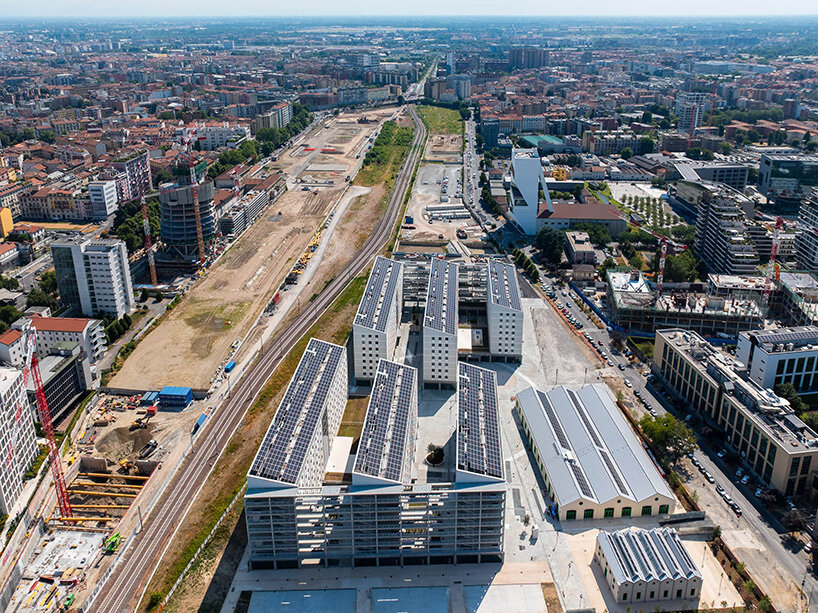
Italy’s first use of the ‘partnering’ contract model for a major public development | image by UDB Studio
A climate-conscious village for future generations
The Olympic Village is one of Italy’s most sustainable residential developments to date. Certified LEED Gold, the buildings achieve zero operational emissions thanks to advanced energy systems consisting of no fossil fuels, high-efficiency heat pumps, LED lighting, and a rooftop photovoltaic array producing 1 MW of power. Prefabricated timber facade panels reduce both construction time and environmental impact. Public green areas, designed by Desvigne, are fully integrated into the neighborhood network, promoting walkability and ecological continuity.
The internal programming, including fitness facilities, coworking areas, dining, and healthcare, will be converted into community-serving spaces after the Games. This approach ensures the Olympic legacy contributes directly to long-term social infrastructure.
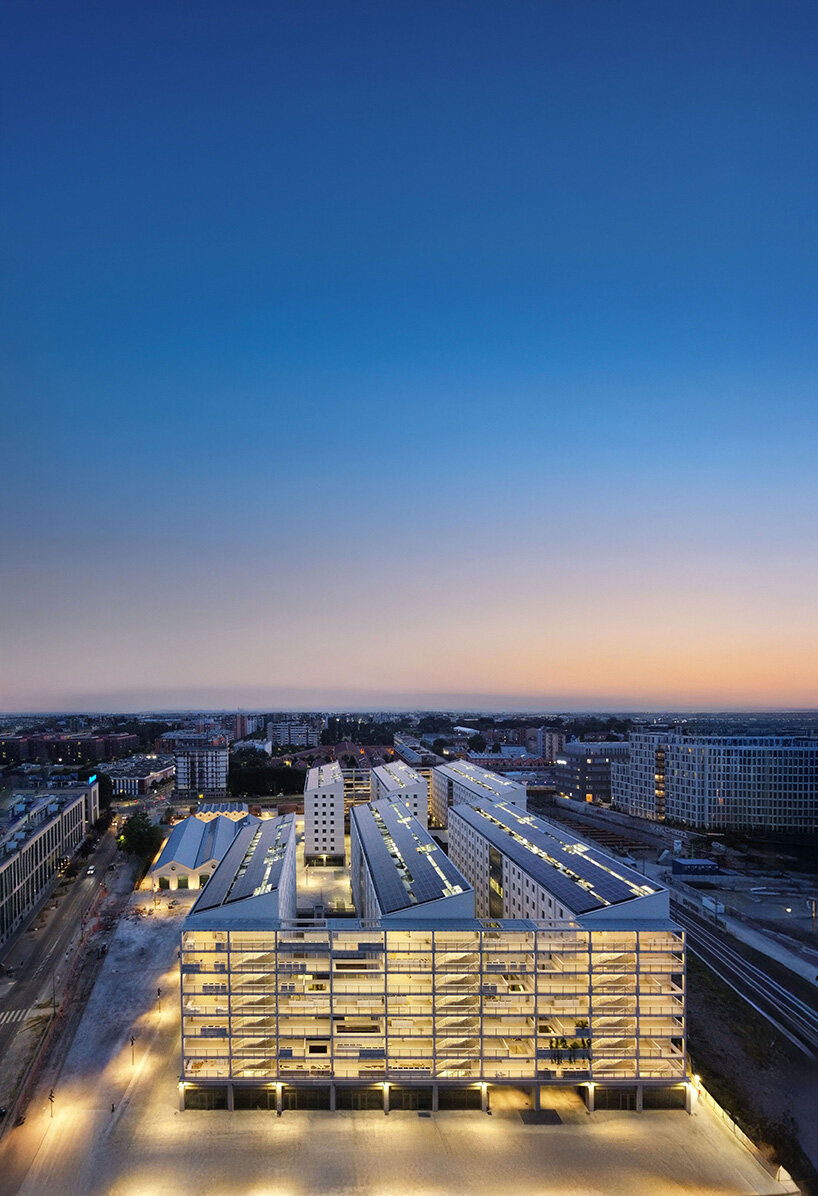
during the Games, the site will host 1,300 athletes | image by UDB Studio
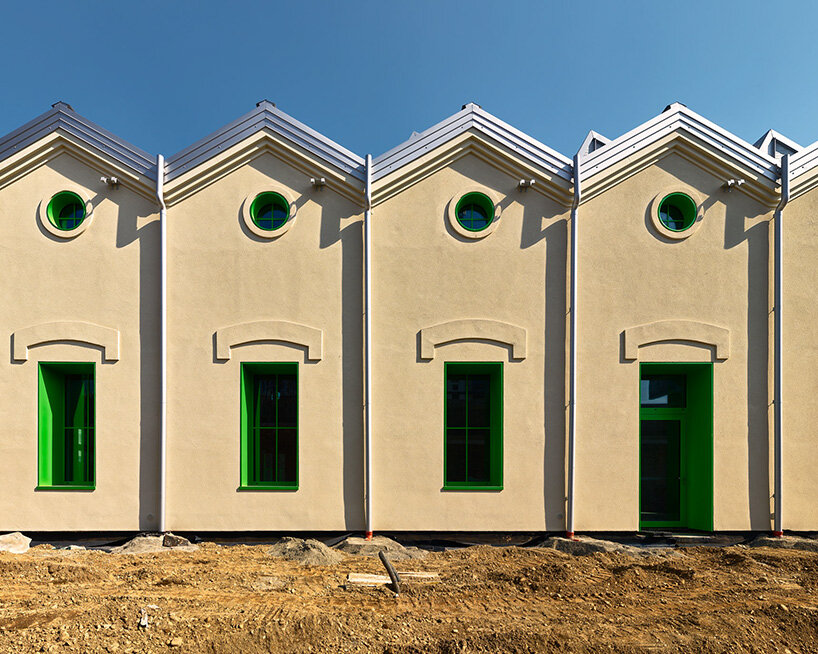
8th March 2025, The Basilico building | image by Donato di Bello
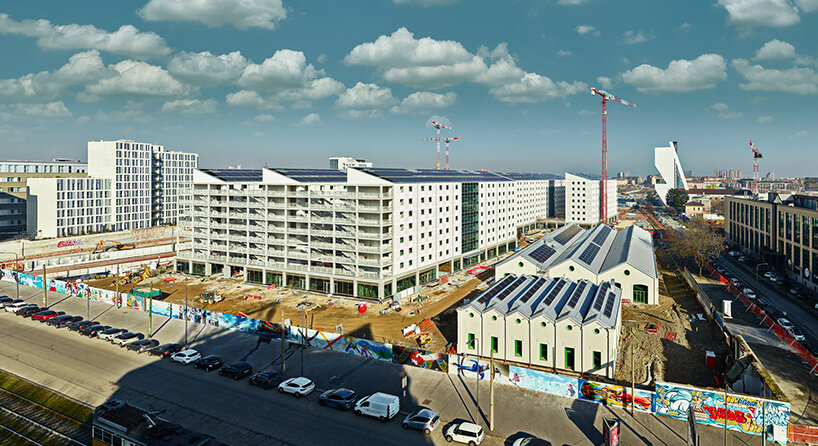
5th February 2025, corner of the construction site between Ripamonti and Lorenzini Streets | image by Donato di Bello
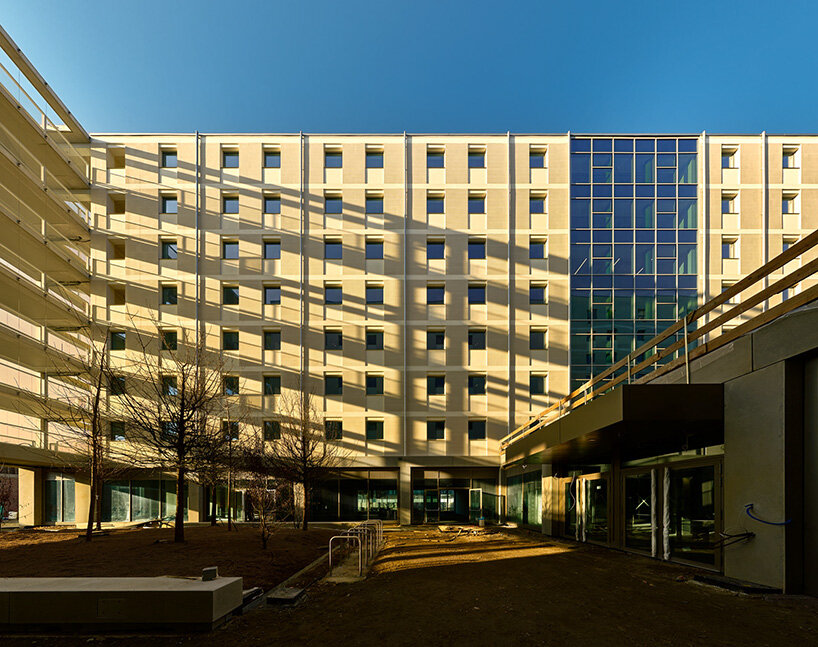
8th March 2025, the West courtyard and building A | image by Donato di Bello
Public and private alignment
The project is supported by a wide consortium of institutional stakeholders, including Cassa Forense, ENPAM, Fondazione Compagnia di San Paolo, Intesa Sanpaolo, and CDP Real Asset SGR. The residential component of the Porta Romana site will also include 320 affordable housing units, covering the housing needs of over 2,500 residents and aligning with Milan’s municipal housing strategies and Confindustria’s national sustainable housing program.
As Italy eyes its post-pandemic urban future, the Olympic Village at Porta Romana stands as an example of infrastructure designed to serve beyond spectacle.
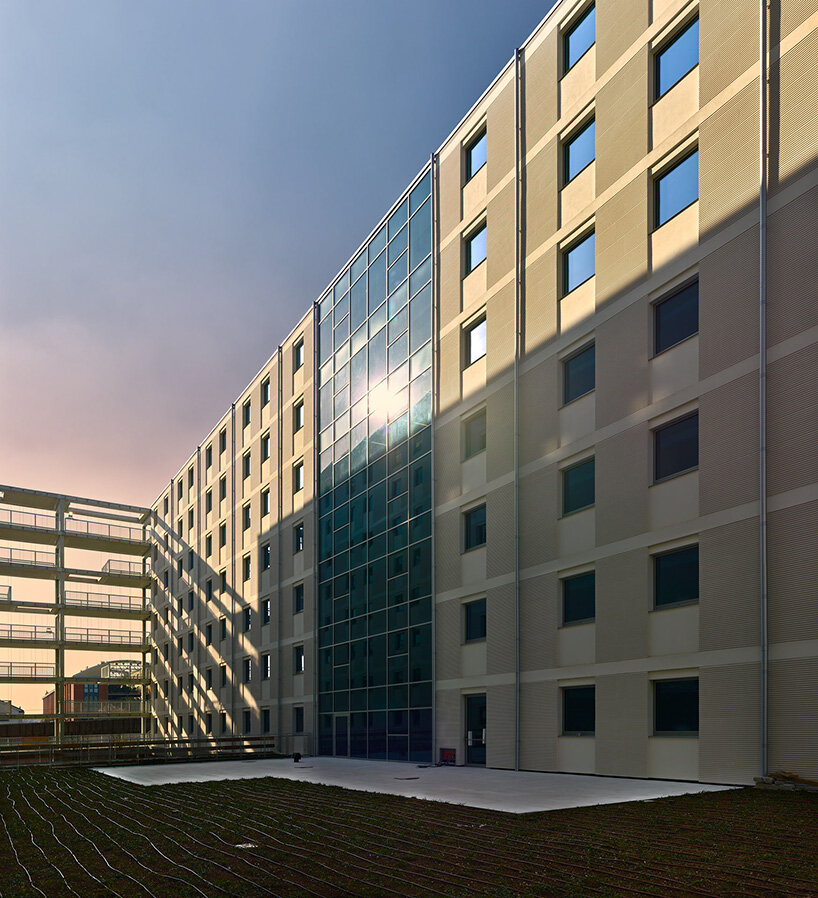
8th March 2025, the South facade of the A building and the mezzanine | image by Donato di Bello
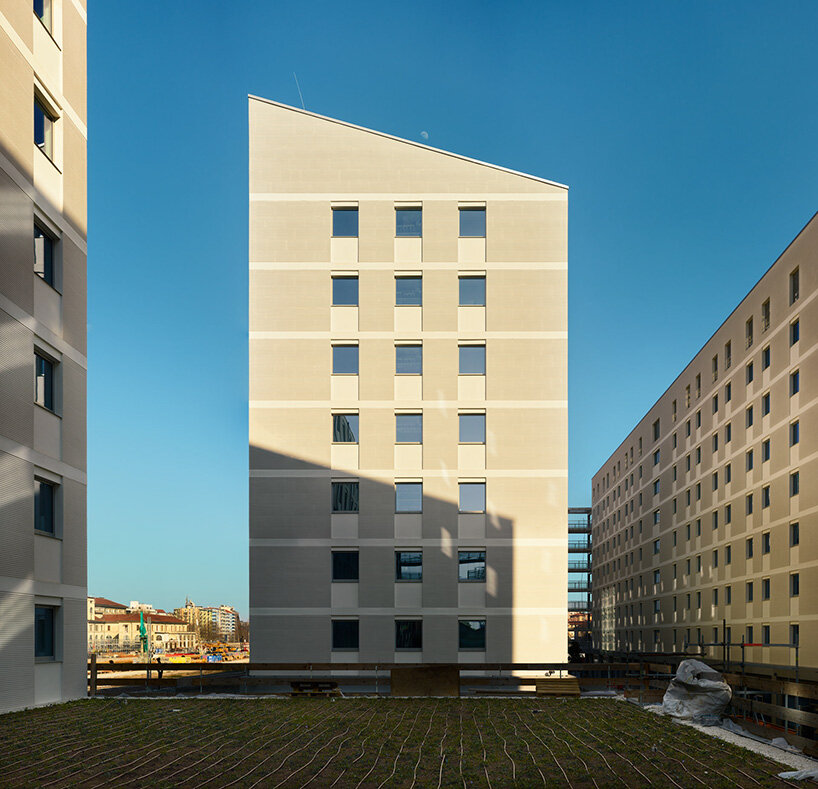
8th March 2025, the South facade of the D building | image by Donato di Bello
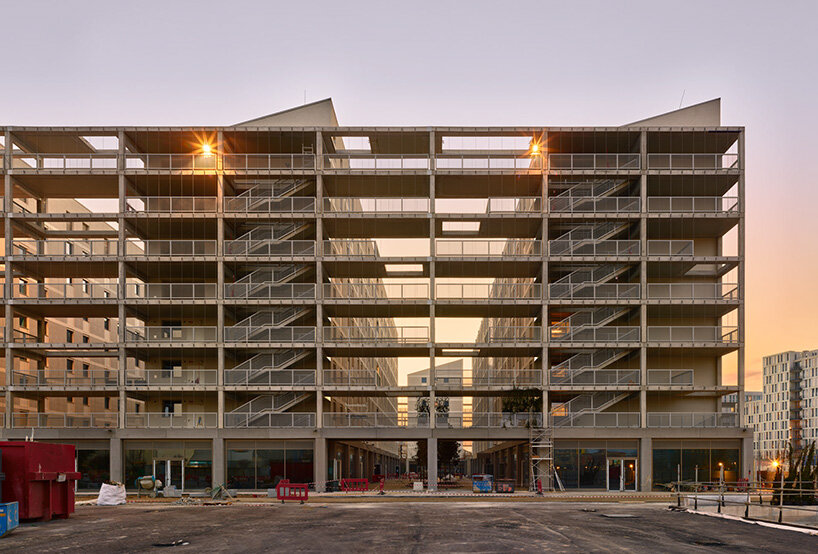
8th March 2025, Olympic Village, the east facade of the construction site | image by Donato di Bello

